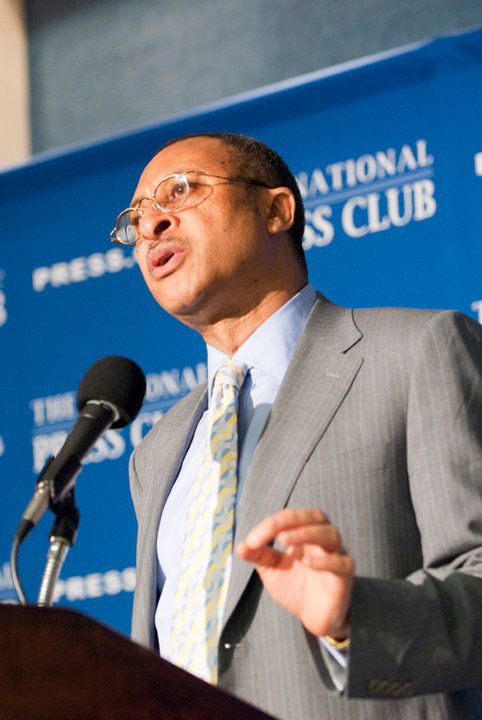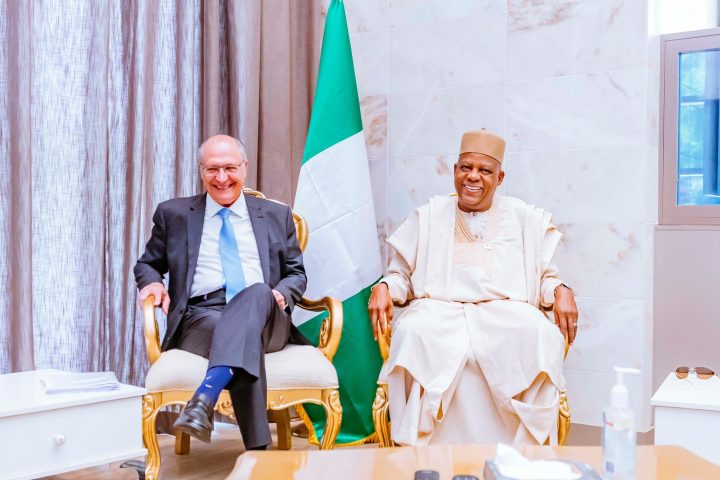The question I most frequently ask of myself is Why are you here. To imagine the number of answers I have offered would be to strain the imagination.
In struggling to summarize my responses to the question I came up with so simple an outcome I was embarrassed for myself.
If the purpose of the creator in fashioning me, as with all the other eight billion people on this planet, is to make us his partners, co-creators moving creation towards its perfection, then it should be obvious that I am here so that those who come after me may have a more noble expression of their humanity.
If this be the essence of being, then the measuring rod for opportunities that anniversaries provide for reflection is how well my time of pilgrim sojourn here has made better the times of those who followed.
Surely this must be the reason parents pray that their offspring be more accomplished and so strive for inter generational wealth transfer.
Join our WhatsApp ChannelREAD ALSO: To Fear Not Is To Do Something – Pat Utomi
If this be truth it is saddening to behold this generation of Nigerians who clearly had a superior quality of life to the one their grandchildren are facing.
Even more mortifying is that the Nigerian elite has so lost a sense of shame that those people attempt to work with swagger dosed out from material afflictions contracted through corrupt engagement. All this is as their country wears the unholy title of the poverty capital of the world even as yesterday’s peers talk about having moved from Third World to the First.
How does such a generation get saved from itself. I take that as homework for my 68th birthday season of reflection this February of 2024.
In ways my work of reflecting is cut out for me by the landmark anniversaries of several of my social enterprise initiatives coming up this year.
This year it will be forty years since I started fighting to protect the rights of poor widows and to promote their welfare. It will also be 25 years since the production of the TV talk show Patito’s Gang began, and 20 years since the Centre for Values in Leadership was founded.
The reason each was birthed and the passion and perseverance that made them survive, bring a Return on Experience (ROE) that inspire reason to have faith in the Nigeria project. The alchemy of grit and faith in how these social ventures we mark their anniversaries have managed to remain impactful for decades even as many have given up on the promise of Nigeria as a place of great prospects suggest why flickers of hope for its rebound find accommodation in my Soul.
One would think grit would be key to how you juggle several impossible missions and keep them in the air for decades. But it has to be beyond grit into the realm of faith. The same persuades me that Nigeria will rise up again but not from wishful thinking.
This is where grit kicks in.
The widow initiatives were first stirred by my anger at social injustice. In 1983 as I watched the plight of one woman who went from upper middle class to homeless in weeks as relatives of her late husband dispossessed her of all. It stirred up something in me. By the time I educated myself on widowhood rites and practices in several parts of Nigeria I found women in jail without trial for spurious accusation by relatives, and children who had become destitute with the passing of their fathers. Starting from organising my Lawyer friends to offer pro bono services to free the wickedly incarcerated, supporting PhD research on Widowhood practices, and public enlightenment lectures, we ended up setting up a Widow support Centre, Microcredit, and skills training schemes. I could not have imagined those programmes would still be running 40 years after.
Twenty five years ago, I decided there was a huge lacuna in the public sphere in Nigeria and that the market place of ideas needed to support the new democracy required heated exchanges by thoughtful people to boost the idea of rational public conversation and promote a developmental state.
I was at the time an admirer of such shows on American television as Capital Gang in Washington, McLaughlin and Company and Cross Fire. I blended concepts from them into a 90 minute magazine talk show most experts said would not make it past two quarters on TV.
I was Executive Producer, Producer, and Anchor.
Highly regarded pioneer DG of NTA Engr Vincent Maduka told me, after three episodes, that it was impossible to sustain that quality of production for more than a quarter. Chief Chris Okolie who got me going down the journalism track as a Youth Corps person in Newsbreed was not even bothered about the high pitch of production standards. He was sure the format was too taxing for it to be around by year’s end back then. The great Engr Maduka was nearly right but we stayed with the opening ways for three years before dropping to an hour and eliminating the crane shots on Bulls eye. Even I myself was at a point certain the show was a path to my personal financial bankruptcy. But it continued to muddle through.
So how did we persevere.
Social capital, we underestimated, was surely part of it just as extraordinary testimonies by Nigerians who stopped me in places like the streets of Melbourne in Australia, LAX in California and Philadelphia Airport to talk about how Patito’s Gang shaped their lives provided fuel.
But it had to be more than all this that gave it longevity. That belief in the possibilities of the human spirit counted for plenty.
As we recorded an episode last week I was not only struck by the fact we had continued traveling that road for a quarter of a century, but that the topic and subject smacked of familiarity with another episode of the show from year 2000.
One of the great stars of Patito’s Gang from that year, the Newspaper Columnist Pini Jason, had titled a book collection of his columns: A Familiar Road. In Nigeria you could publish an article from 15 years back and it would read like doctors prescription for that day. Not easy driving down a familiar road for 25 years but we had gone from 90 minutes syndicated on all the networks in the country to one hour and then 30 minutes exclusively on Channels Television for several years until last year from which it transited to Web tv plus being in syndication. How do you treat a recursive state that takes two steps forward and three steps backward perennially?
With the Nigerian commercial sector petrified of being associated with candor, lest they be identified with a programme that spoke truth to power, and perhaps earn the wrath of people in power, funding the production and airing of Patito’s Gang became a nightmare I had to bear alone.
To imagine that for 25 years has to be evidence of a force beyond grit – believing, faith.
Then comes the leadership question. Chinua Achebe had alerted us that the trouble with Nigeria was leadership. So who was doing something about it. How do we teach a generation that values shape human progress. Twenty years ago I stepped forward to do something, with the founding of the Centre for Values in Leadership.
It would become the flagship legacy social enterprise of my endeavors. Even I wonder how it has been around this long with its considerable impact. It speaks again to a force beyond grit.
Before I read Angela Duckworth’s influential book, Grit – The Power of Passion and Perseverance, I had repeatedly challenged the view that genius shapes progress. I still recall the banner headline from the last Saturday in September 1997 in This Day: “I am not a Genius – Pat Utomi”.
It came from my push back on a question from Max Amuchie in which I was being dressed in borrowed robes. It was not false modesty but an honest suggestion that young people need to know that grit will get you farther than genius.
Duckworths book more than 20 years after affirmed for me the point I was trying to make then. But beyond grit you need a certain faith in the human spirit. I believe that believing has helped the endurance of these initiatives against almost incredible odds. It is believing that keeps the promise of Nigeria flickering in some when many have given up.
Patrick Okedinachi Utomi, a Political Economist and Professor at the Lagos Business School has been a serial entrepreneur, social entrepreneur and economic growth activist.

















Follow Us